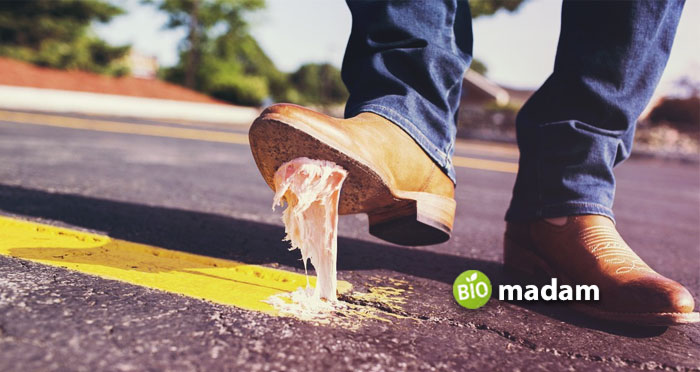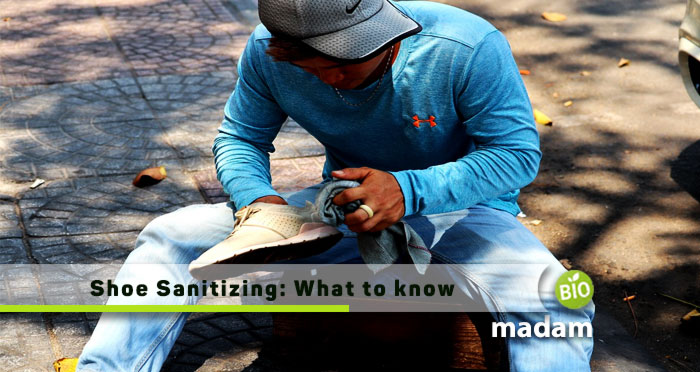Recently updated on January 31st, 2024 at 06:41 am
Sanitizing your shoes is an important part of staying healthy and ensuring that you don’t bring any more bacteria into the house than necessary.
This article will explore six things you should know about sanitizing your shoes, including how to clean and disinfect them regularly so as not to be spreading germs all over the place.
Why is Sanitizing Important
Shoes come into contact with a variety of surfaces, both indoors and outdoors. These surfaces can harbor all sorts of bacteria, fungi, and other pathogens that can cause illness. As found out at https://www.healthysole.com/how-long-does-coli-live-on-shoes, shoes can be home to E. coli and other harmful bacteria for up to a couple of months. These organisms can cause everything from diarrhea to meningitis.
So, sanitizing your shoes regularly can help reduce your risk of exposure to these pathogens and save the health of yourself and your family.

Sanitizing with Commercial Products
Several commercial products on the market can be used to clean your shoes. These products usually come in the form of sprays, wipes, or gels. They work by killing bacteria and other organisms on contact. These products are typically easy to use. You simply spray or wipe them on your shoes, let them sit for a few minutes, and then rinse the shoes off with water.
These commercial products also include bleach and alcohol, which can be harsh on your shoes as well. So, it’s important to read the instructions carefully and test them on a small area of your shoe first to make sure they don’t damage the material.
Using Household Products
If you don’t have a commercial shoe sanitizer handy, you can use some common household items to clean your shoes. Vinegar is a good option, as it is a natural disinfectant. You can also use baking soda or hydrogen peroxide. All of these products can be sprayed or wiped onto your shoes to kill bacteria and other organisms.
These products are also great because they are often more environmentally friendly than commercial shoe sanitizers and much cheaper, too. Another plus is that most of these items you already have in your home, so availability is not an issue.
Temperature Changes
Another way to sanitize your shoes is by sunning them. Sunning shoes is a great way to get rid of bacteria and other organisms, as the sun’s rays are a natural disinfectant. To sun your shoes, just place them in a sunny spot outside and let them sit for a few hours. Be sure to check the weather before doing this, as you don’t want to leave your shoes out in the rain or snow.

If you don’t have time to sun your shoes, you can also freeze them. Freezing will kill most bacteria and other parasites in contact. To freeze your shoes, place them in a plastic bag and put them in the freezer overnight.
Another option is to heat your shoes up. Heating will kill most bacteria and other organisms in contact. To heat your shoes, place them in a plastic bag and put them in the microwave for 1-2 minutes. Be careful not to overheat your shoes, as that can cause damage to the material or footwear inside of it.
Drying
After cleaning your shoes, it is important to make sure they are completely dry before wearing them again. Damp shoes can become the perfect environment for bacteria and other organisms to grow, so take your time letting them dry before wearing them again.
To help speed up the drying process, you can place a small fan nearby or use a blow dryer on a low heat setting.
Regarding the air, you can always use compressed air as another great option for sanitizing your shoes. To do this, use an air compressor to clean out the insides of your shoes. This will help remove dirt and other debris that are hiding in there somewhere! Dust can hide bacteria so being sure to keep them as cleaned out as possible is always ideal.
Depending on the Material
Different materials respond differently to different sanitizing methods. So, it’s important to know which method works best for your shoes. For example, if your shoes are made of suede, you should avoid using products that contain bleach or alcohol, as they can damage the material.
In general, it’s a good idea to test different sanitizing methods on a small area of your shoe before using them on the entire shoe. This will help you avoid damaging your shoes. Or better yet, take your shoes to a professional and have them cleaned and sanitized.

There are a variety of ways to sanitize your shoes, and as such, there is no one-size-fits-all method. You must know how different materials respond before deciding which shoe cleaning product will work best for you. If you’re not sure what the right product or strategy is to clean your particular type of shoe, we recommend taking them into a professional and having them cleaned and sanitized.

Hi, they call me Jenna, and I am also known for achieving a gold medal during my Ph.D. in science life. I always had a dream to educate people through my utmost writing hobby. So, I chose this blogging path, and Biomadam gave me this opportunity to present for them. I now stand to entertain you. Continue reading my articles & discuss if you’ve any confusion through the comment section below.

